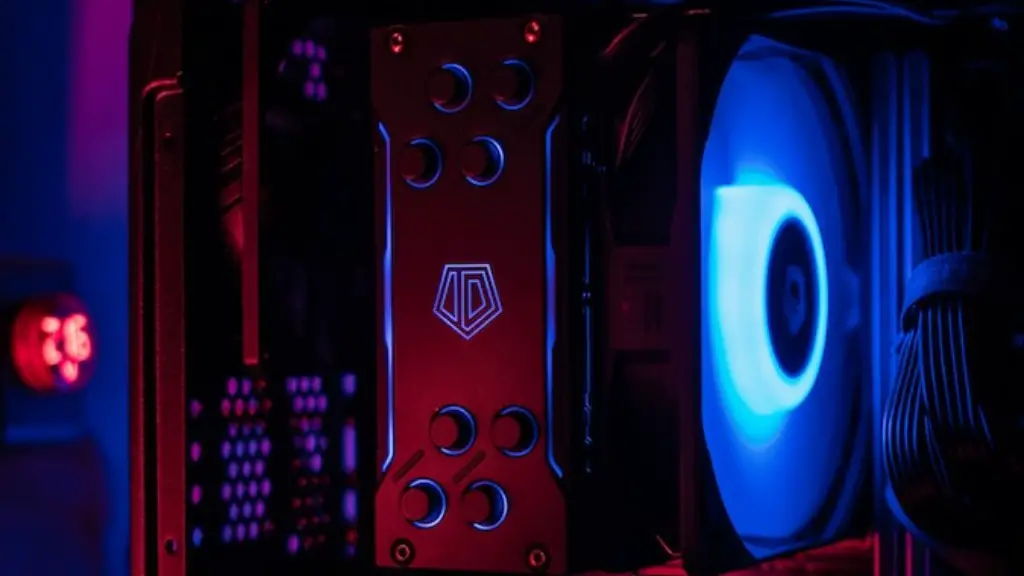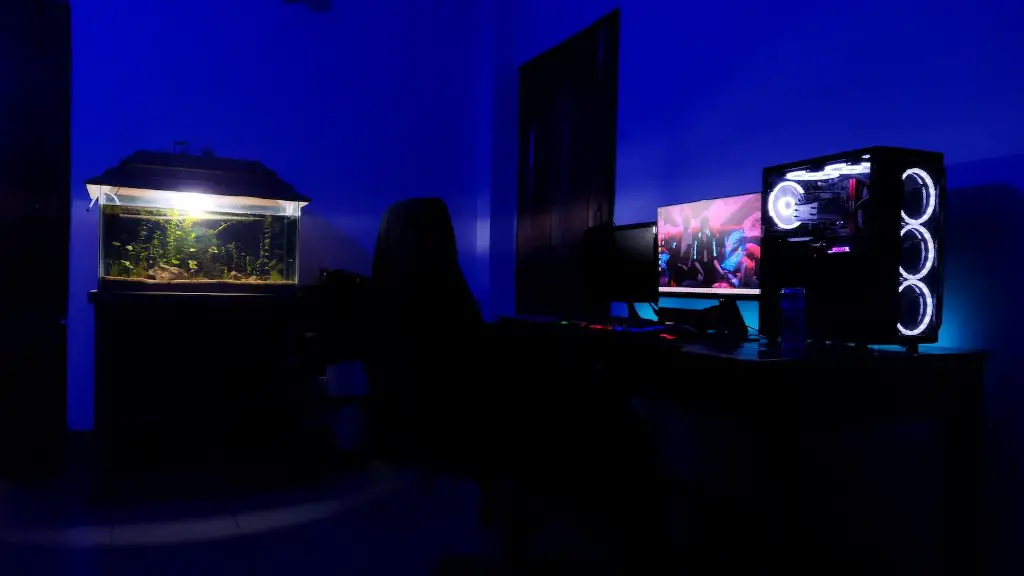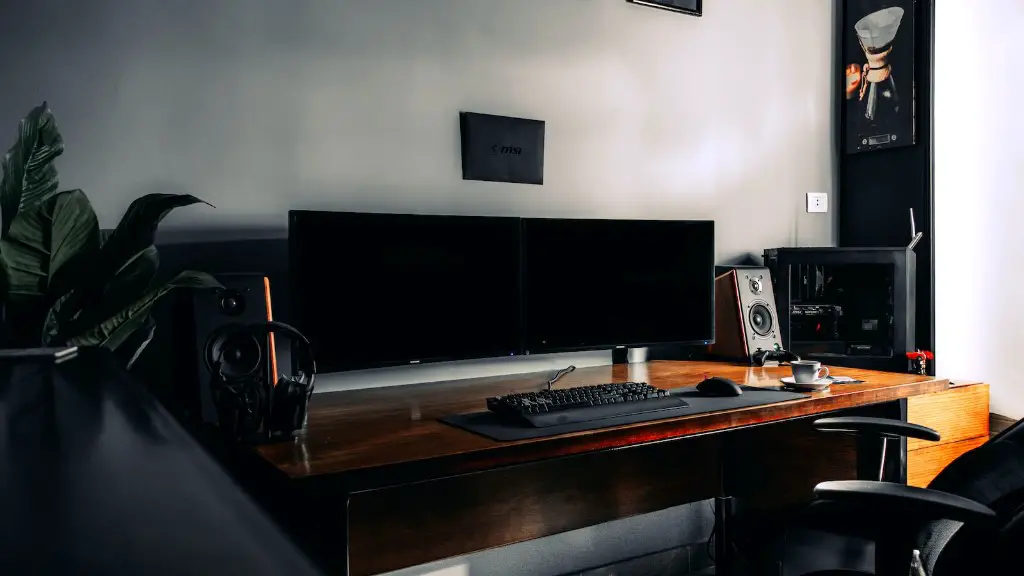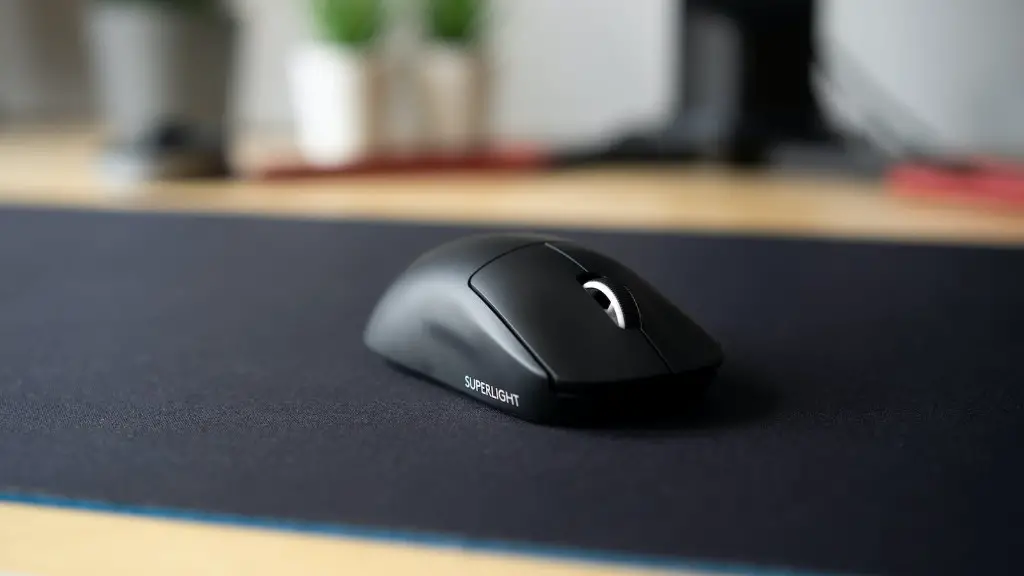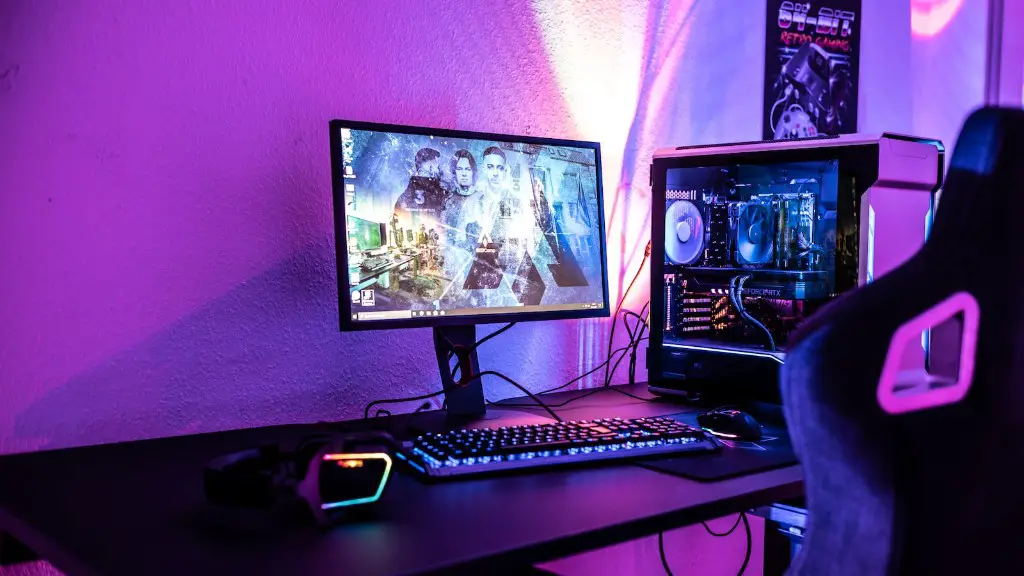Gaming PCs are an increasingly popular choice for gamers looking to maximize their gaming experience. But before you can choose the perfect gaming PC for your needs, you need to know what specs to look for. To start, you should always consider the processor. In general, the more powerful the processor, the better your gaming PC will perform. Other key components that should factor into your decision are the GPU, memory, storage, case and cooling system.
The choice of processor is a crucial one. Most gaming PCs use Intel or AMD processors that offer more power than traditional CPUs, allowing them to handle more advanced gaming tasks. Look for a processor that can handle the games you’re most interested in playing, and also consider what kind of upgrade potential it offers in the future. Some common Intel processors used in gaming PCs are the Core i7 and the Core i9.
The graphics card, or GPU, is another important element of a gaming PC. It’s responsible for rendering visuals and processing images for the monitor and should be powerful enough to handle the games you’re interested in playing. Common GPUs include those from Nvidia and AMD, and it’s important to note that for some games, such as VR titles, you’ll need a more powerful GPU.
The type of memory in your gaming PC is also important. Random access memory, or RAM, is the main type of memory used in computers and makes up the bulk of a gaming PC’s internal storage. Generally, more RAM will help with game performance, and you should strive for at least 8GB of RAM.
Storage is also crucial, as this is where the bulk of your games will be stored. Solid-state drives, or SSDs, are popular choices, as they deliver fast loading times and have large capacities. Hard disk drives, or HDDs, are also used in gaming PCs, though they tend to be slower than SSDs. It’s a good idea to opt for a larger capacity to make room for more games.
A gaming PC’s case should also come into play. The case should provide sufficient airflow to keep the components cool, and you may opt for a larger case if you want to include additional components down the line. The case should also provide room for cable management to help with organization.
Finally, a cooling system is also an important part of a gaming PC’s setup. All the major components should be able to run cooler, resulting in less stress on the system. Options for cooling systems include water cooling and liquid cooling, and it’s a good idea to consider these when building a gaming PC.
Processors
The processor is essential to any gaming PC, as it is responsible for handling the majority of the computing power. Generally, the more powerful the processor, the more capable the gaming PC will be. Intel and AMD processors are the most common choice for gaming PCs, with Intel’s Core i3, i5 and i7 processors being the most popular. Each of these processors offers various levels of power and should be chosen according to your gaming needs.
It’s also important to consider the upgrading potential of any processor you choose. A powerful processor with upgrade potential will ensure your gaming PC performs well for years to come.
The best way to select the right processor is to carefully consider the type of games you’ll be playing, as well as the graphics card you’ll be using. This will help you determine which processor is the most suitable for your needs.
It’s also important to note that while a more powerful processor may seem like the obvious choice, it may not be the best option if you’re working with a budget. Consider the cost of the processor compared to the gaming performance it offers, as this will allow you to find the best possible processor for your gaming PC.
Finally, don’t forget to consider the warranty offered with any processor you buy. Many processors come with a limited warranty that covers any issue that may arise during its usage.
Graphics Card
The graphics card, or GPU, is another important component of any gaming PC and should be chosen according to the type of games you’ll be playing. Graphics cards from Nvidia, AMD and Intel are all popular choices, with each offering their own advantages.
Nvidia GPUs are generally considered to be the most powerful, while AMD GPUs are typically more affordable. An Intel GPU is a good choice if you’re looking for a budget option as they offer more power than traditional CPUs at a fraction of the cost.
It’s also worth noting that if you’re interested in playing more advanced games, such as VR titles, you’ll need a more powerful GPU. In these cases, the Nvidia RTX 2080 or the AMD Radeon RX Vega 64 are widely considered to be the best options.
The best way to select the right graphics card is to look at the resolution of the monitor you’re using. Higher resolution monitors will require a more powerful GPU and you should also consider any future upgrades you may want to make.
It’s also important to consider the other components in your gaming PC, as these will affect the GPU’s performance. A powerful processor, for example, will allow the GPU to operate at maximum capacity.
Finally, keep in mind that graphics cards are one of the most expensive components in a gaming PC, so it’s important that you select the right one for your needs. Be sure to research the options available and consider the performance and cost of each one before making a decision.
Memory
Random access memory, or RAM, is essential for any gaming PC and is used to store data temporarily. Generally, more RAM will result in better performance when gaming, and you should strive for at least 8GB of RAM. However, if you’re looking to play more intensive games, opting for 16GB or more is recommended.
When choosing a RAM type, you should look for DDR3 or DDR4, as these are the most common types used in gaming PCs. DDR4 is typically more expensive, but offers faster speeds and more capacity than DDR3.
It’s also important to consider the type of architecture used in your RAM. Dual-channel RAM is the most common option and is ideal if you’re only gaming. Quad-channel RAM is better suited for multitasking, and is often found in more expensive RAMs.
When selecting RAM for a gaming PC, you should also pay attention to the clock speed. The higher the clock speed of the RAM, the faster it will operate. Generally, anything over 2133MHz is considered fast enough for gaming.
Lastly, it’s important to consider the type of RAM you’ll be installing. DDR3 and DDR4 RAM can both be used in gaming PCs, but DDR3 may require an adapter to be used in a more modern system.
Storage
The type of storage is also an important consideration when building a gaming PC, as this is where games will be stored. Solid state drives, or SSDs, are generally preferred for gaming PCs as they offer faster loading times than traditional hard drives. For a larger capacity, however, HDDs are also a popular choice.
When choosing storage, it’s important to consider the read and write speeds, as these will determine how quickly files can be transferred. Look for a drive with a transfer rate of at least 500MB/s, as this will ensure that games install and launch quickly.
It’s also important to consider the capacity of the drive. A 1TB drive should provide enough storage for most gamers, though larger drives can be used if you need more space for games and other files.
Finally, it’s important to consider the type of drive you’ll be using. While HDDs are cheaper and offer more capacity, they are slower than SSDs and can be prone to problems if not properly cared for. SSDs are faster, more reliable, and come in smaller sizes, making them the preferred choice for most gamers.
Case
The case of a gaming PC is another important component, as it should provide sufficient airflow to keep the components cool. When considering a case, you should look at the number of fans that come with it, as well as the overall design.
Most gaming PCs will have several fans to ensure adequate airflow, and you may want to opt for a larger case if you plan to add additional components down the line. It’s also important to consider the type of material used in the case, as some materials can absorb heat and cause components to overheat.
Cable management is also an important factor to consider when selecting a case. The case should have enough space for your cables, as well as adequate routing options to help keep them organized.
Lastly, it’s a good idea to look for cases with removable side panels, as this will allow for easier access to the components. This will make it easier to upgrade the components in the future without having to purchase a new case.
Cooling System
A good cooling system is essential for any gaming PC, as it can help keep the components from overheating and reduce stress on the system. There are several options available, including air cooling, water cooling and liquid cooling.
Air cooling is the most common option and uses fans to circulate air around the components. This is a good choice if you’re on a budget, but it’s not as effective as other cooling systems. Water cooling is more effective and uses liquid to cool the components, while liquid cooling is considered to be the most efficient option.
It’s important to consider the size of the cooling system when selecting one, as the bigger the system, the more efficient it will be. Additionally, some cooling systems come with additional features such as RGB lighting, which can add a more aesthetic appeal to your gaming PC.
Finally, it’s important to consider the manufacturer of the cooling system, as some brands may offer better support and warranties than others. Make sure to research the various offerings before making a decision.
